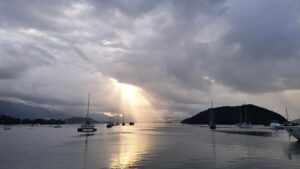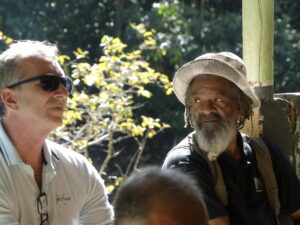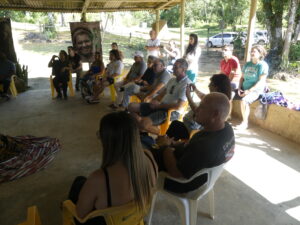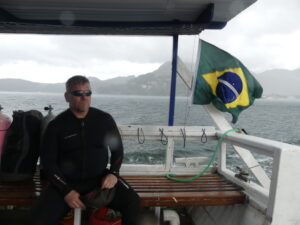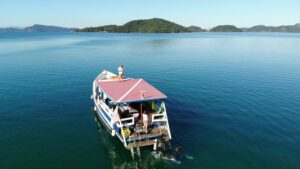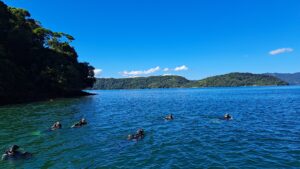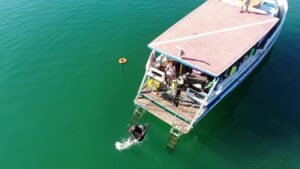Brazil
In 2023, the Slave Wrecks Project first visited Brazil to assist the recovery of brig Camargo. The Camargo is the first archeological investigation of a shipwrecked slave ship in Brazil by the AfrOrigens Insitute. We are working with our partners in Brazil to identify and recover the wreck, and work with the descendant community at the Quilombo Santa Rita do Bracuí to understand the living legacies of this important history.
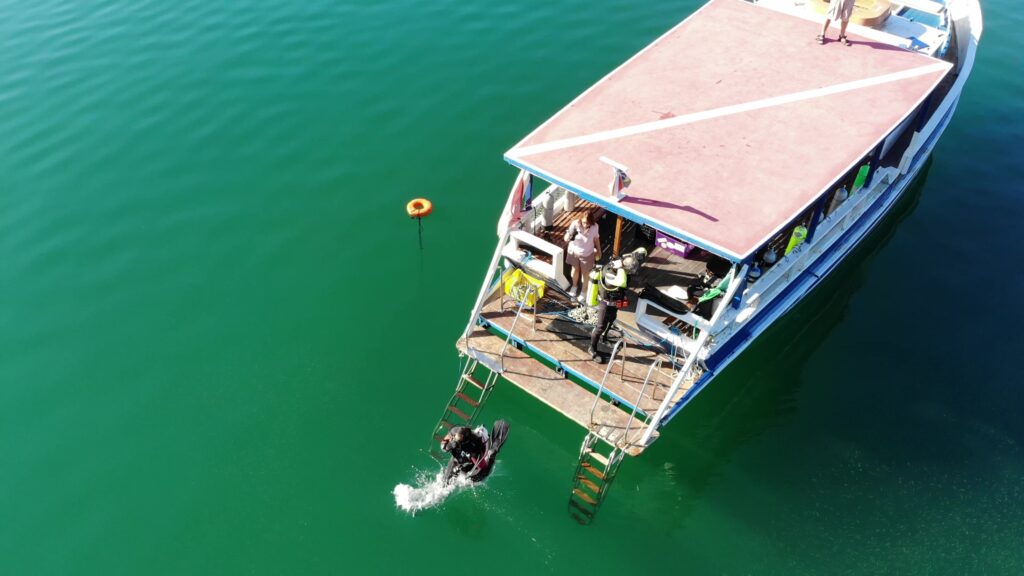
In 2023, the Slave Wrecks Project (SWP) visited Brazil to assist the recovery of brig Camargo. The Camargo is the first archeological investigation of a shipwrecked slave ship in Brazil by the AfrOrigens Institute. The Camargo case is the pilot program of the AfrOrigens, which will continue to search for and study of wrecked slave ships off the Brazilian coast. AfrOrigens collaborates with the SWP networks on an international level to enhance collective goals of maritime archaeological research and historical recovery, while working directly with descendant communities, international teams, and local constituencies.
This collaborative initiative seeks to study the brig Camargo, the last known ship to land enslaved Africans in Brazil in December 1852. The current research area is Port of Bracuhy and Port of Frade, in Angra dos Reis, Rio de Janeiro, Brazil. The nearby Afro-Brazilian community of Quilombo Santa Rita do Bracuí recognizes their ancestors and history of resistance as directly linked to the sinking of the brig Camargo.
SWP and its global partners are excited to continue their support of and collaboration with local partners in Brazil, including AfrOrigens, the University of Sergipe, the Quilombo Santa Rita do Bracuí, and others.
Learn more about our past and current work in Brazil here.
History of the Camargo
In 1851, captain Nathaniel Gordon, a U.S. citizen from Portland, Maine, stole the brig Camargo in San Francisco, and launched an almost decade-long slaving enterprise. According to testimonies at the time, in 1852 Gordon was in the process of delivering a large number of enslaved people to the Brazilian enslaver Commander Souza Breves near his holdings in Angra do Reis, when the discovery of his operation forced him to set fire and sink the Camargo to escape. Gordon would continue in his slaving pursuits until he was apprehended in 1860 by the U.S.S. Mohican while transporting over a thousand enslaved Africans aboard the ship Erie to Cuba. Gordon is the only U.S. captain hanged for slave trading, despite it being a capital offense since 1820.

